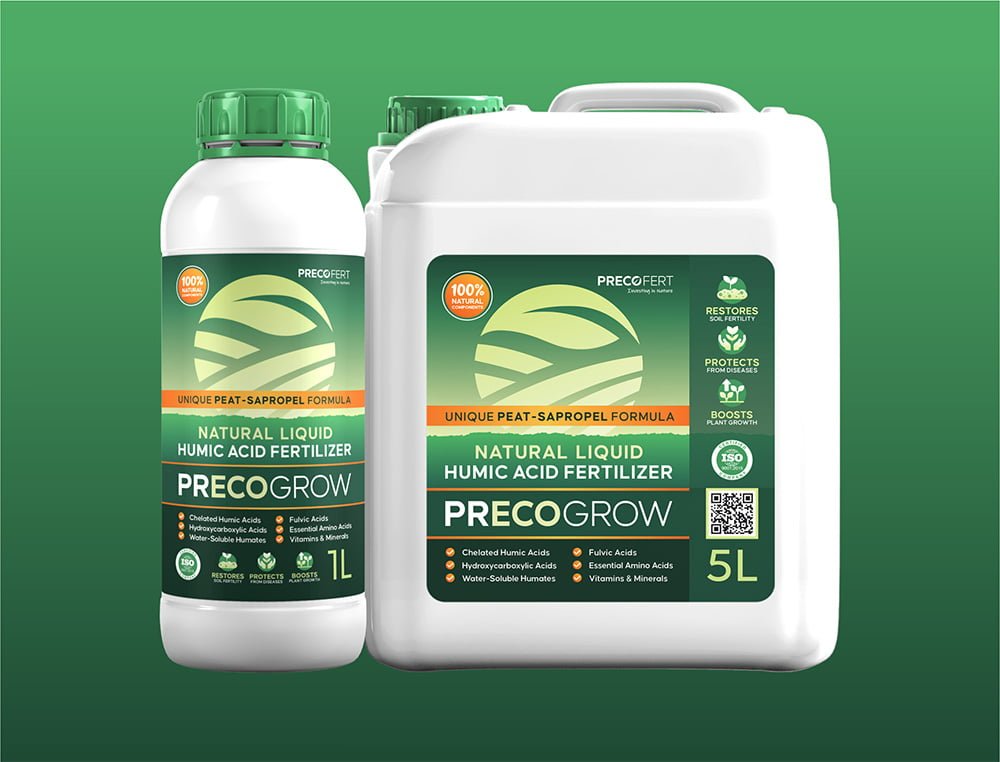Menu
Advantages and Disadvantages of Organic Fertilizers
Advantages
- Renewable and Sustainable: Made from natural resources, organic fertilizers are an eco-friendly choice that supports sustainable farming practices.
- Affordable and Easy to Apply: Generally cost-effective and user-friendly, making them accessible for various farming and gardening needs.
- Environmental Safety: They do not pollute the environment and are safe for underground water sources.
- Compatibility: Can be used in combination with other fertilizers, offering flexibility in nutrient management.
Disadvantages
- Variable Nutrient Composition: In their raw form, organic fertilizers may have inconsistent mineral content and slower nutrient release compared to synthetic options.
- Potential Contaminants: They may contain pollutants or pathogenic microbes.
Be reassured that they are effectively removed through processing by PRECOFERT.
How to apply PRECOGROW
1. Seed Soaking
Soaking seeds in our concentrate offers an economical alternative to expensive microfertilizers. This method enhances seed germination, vigor, and overall health. It also improves seedling resistance to diseases and pests. You can use this technique in two effective ways: soaking seeds directly or applying the concentrate through spraying.
2. Crop Seeding and Fertilization
PRECOGROW, enriched with peat and sapropel, increases overall crop yield while minimizing loss and failure. When used for seeding and fertilization, it provides essential nutrients, humic compounds, and beneficial microorganisms. Additionally, it enhances soil structure, water retention, and aeration, fostering a healthier growing environment.
3. Seed Preparation
Gently wake seeds and prepare them with PRECOGROW soaking to ensure they are well-nourished and ready for planting. This preparation optimizes seedling growth and development.
4. Spraying
Spraying with peat-sapropel fertilizer is a cost-effective method for applying beneficial compounds. This approach boosts the uptake of nitrogen-rich fertilizers and other minerals, enhancing plant photosynthesis, respiration, and metabolism.
5. Compost Activator
Use peat-sapropel concentrate as a compost activator to accelerate the decomposition of organic waste. It enriches compost with microelements and humic compounds, improving its quality and effectiveness.

Organic Fertilizer PRECOGROW
Peat and Sapropel Concentrate, Composition:
- Humic Acids18 g/l
- Fulvic Acids8 g/l
- Water-Soluble Humates4.5 g/l
- Amino Acids Asparagine, Threonine, Serine, Glutamine, Valine, Glycine, Leucine, Isoleucine, Phenylalanine, Proline, Tyrosine, Lysine, Alanine, Methionine, Histidine, Arginine
- Macroelements - Nitrogen (N)≥ 10 g/l
- Macroelements - Phosphorus (P₂O₅)≤ 5 g/l
- Macroelements - Potassium (K₂O)≥ 8 g/l
- Vitamins B, B1, B2, B3, B5, B6, B9, B12, E, C, P
- pH5.5 - 7.5
- StateLiquid
Crops, carnivorous plants, cacti, cannabis, seeds, roots, plants, trees and shrubs, mushrooms, lawns, grass, date palms, flowers, edible flowers and plants, tubers, houseplants, fruit trees, strawberries, berries, grapevines, corn, poppy, wheat, barley, triticale, hops, alfalfa, fodder plants, in hydroponic plant cultivation, greenhouses, vertical farms, soil improvement preparations, compost strengthening preparations.